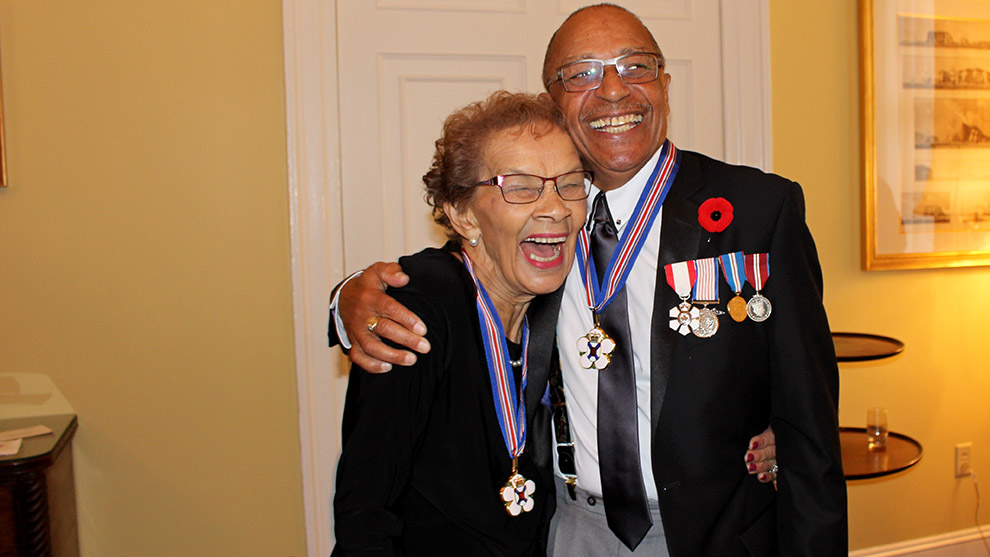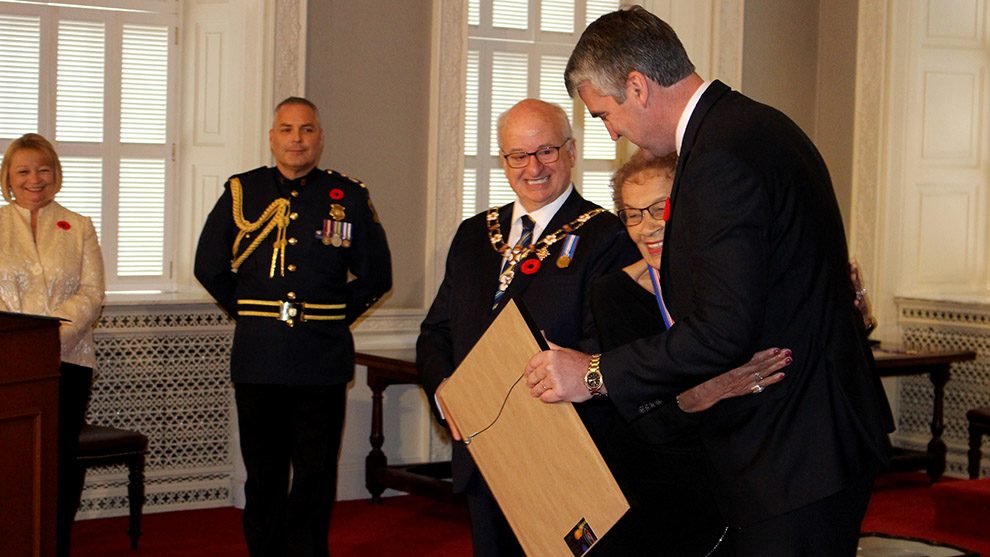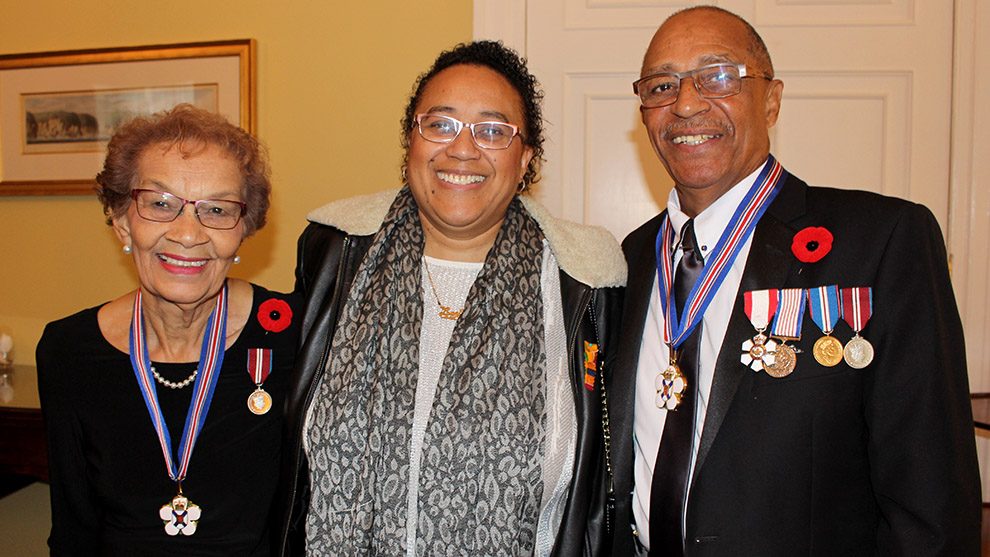Order of NS
Black advocate, educator receive Order of Nova Scotia
Only five people receive the honour each year

caption
Geraldine Browning (left) and Brad Barton (right) share a laugh after becoming members of the Order of Nova Scotia
caption
Geraldine Browning (left) and Brad Barton (right) share a laugh after becoming members of the Order of Nova Scotia.Two African-Nova Scotians with a long history of education and advocacy were given the province’s highest honour on Tuesday.
Geraldine Browning and Brad Barton were honoured with medals by Nova Scotia Premier Stephen McNeil and Nova Scotia’s lieutenant-governor, Arthur LeBlanc, at a small formal gathering at Province House.
Browning and Barton were two of the five appointees to the Order of Nova Scotia. They were chosen from a list of 93 people nominated by the public.
When Browning, a longtime human rights advocate, first heard that she was a recipient of the Order of Nova Scotia she asked, “Why me?” Related stories
Browning spent her early childhood in East Preston, an historically black community northeast of Halifax, where “we didn’t even know what racism was because everybody was the same.”
However, as a black student with hopes of becoming a social worker, she was soon confronted with systemic racism.
“I couldn’t be anything I wanted to be, I was told by the principal. I wanted to be a social worker, and he said with your race you’ll never be a social worker in Nova Scotia. So I said, ‘could I be a nurse?’ And there again, his elbows came down on his desk, ‘you cannot be in Nova Scotia. They won’t hire you.’”
Browning worked as a nurse in Montreal and is now the president of the Valley African-Nova Scotian Development Association. She was instrumental in fighting for the rights of African-Nova Scotians as a founding member of the Black Business Initiative and the Black Cultural Society. She now spends much of her time telling her story to schools and universities across the province.

caption
Browning hugs Premier Stephen McNeil after receiving her medal from Lt.-Gov. Arthur LeBlanc.Fellow recipient Barton has been an educator, coach and sports official in Nova Scotia for 50 years. In that time, he’s seen how far African-Nova Scotian rights have come since he began school as a student in a small segregated school in rural Nova Scotia.
“We have individuals who are now involved at the board level with race relations, student support workers, African-Nova Scotian school board members, African-Nova Scotian Affairs; we have all those things and they’re all here,” said Barton.
However, both he and Browning acknowledge that there is still much to be done.
“We’re not there,” said Barton. “Even though we may think we’re there, always something comes up that generates a negative reaction to us and to people who are not part of the mainstream.”
While African-Nova Scotians make up two per cent of Nova Scotia’s population, a 2016 report on corrections in Nova Scotia says they represent 12 per cent of people in prison.
Lezlie States, Barton’s daughter, was at the ceremony to support her father. Browning also happens to be States’ cousin, but she is not related to Barton.
While the ceremony was special for her and her family, States knows the significance of this occasion goes well beyond her two relatives.
“I think this means for us that we have a great future,” said States. “These people are still fighting the battle after all these years. We know there’s change still to come, and when they’re ready to slow down we’re ready to pick it up and keep it going.”

caption
Lezlie States (centre) poses with her father Brad Barton (right) and cousin Geraldine Browning (left).Browning took particular issue with the province’s Individual Program Plan for students, which she said doesn’t give students the qualifications they need to succeed.
“They walk across the stage with a certificate that doesn’t get them anywhere. They can’t even get into community college because they don’t have the education, so what do they do? They go to the streets and they waste their life away,” said Browning.
According to statistics from the 2011 household survey, African-Nova Scotians have a 77.7 per cent graduation rate, compared to Nova Scotia’s general rate of 85.3. The unemployment rate for African-Nova Scotians is 14.5 per cent compared to Nova Scotia’s overall rate of 9.9.
Alongside Browning and Barton, Irene d’Entremont, Ray Ivany and Peter Nicholson also became members of the Order of Nova Scotia on Tuesday.

